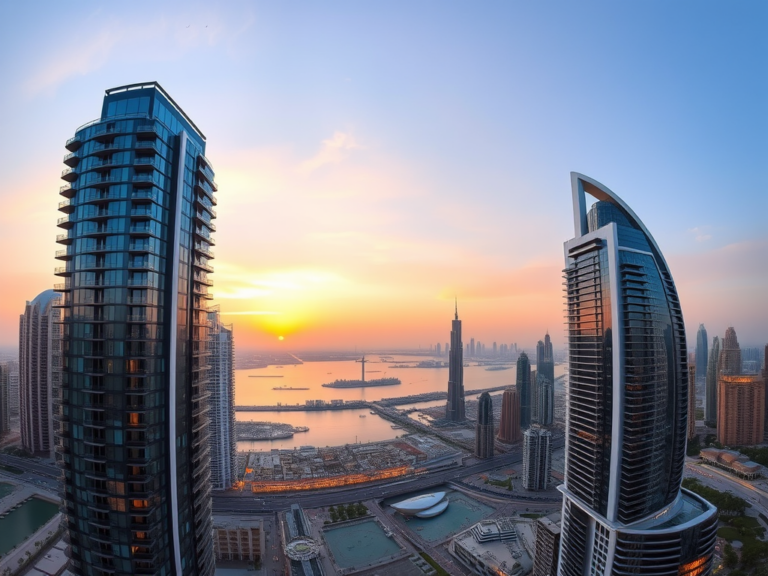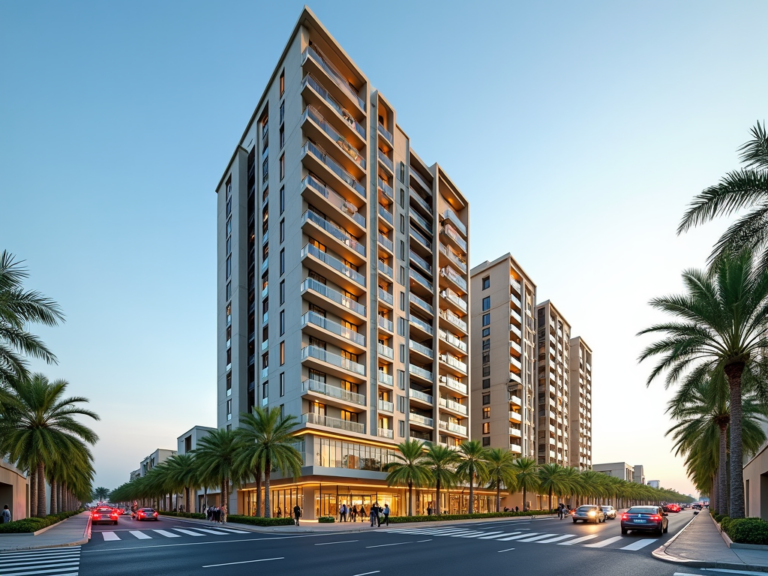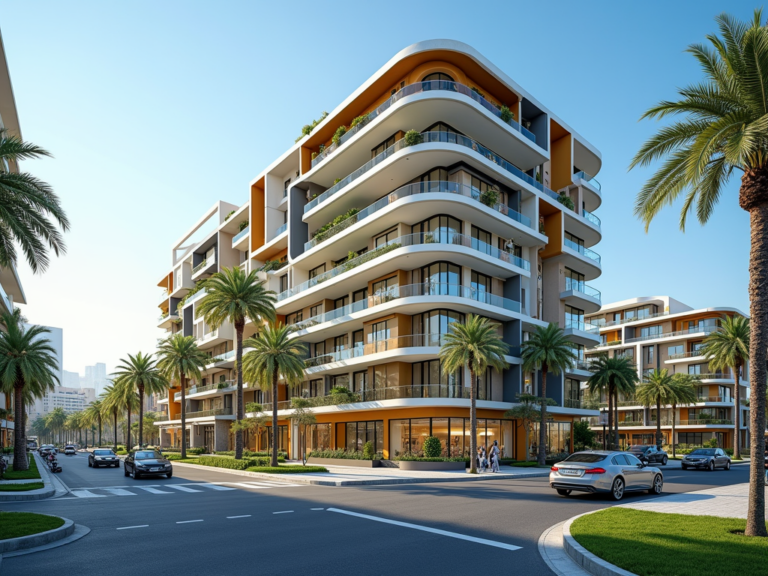When one thinks of Dubai, the image that often springs to mind is its impressive skyline, brimming with architectural marvels and opulent residences, all of which underscore the potential for real estate jobs in Dubai with basic salary expectations that can cater to a wide range of professionals. Property management stands at the forefront of this sector, promising a promising career path for those keen on maintaining the splendor and functionality of these properties. In the realm of property management jobs in Dubai, there is a plethora of opportunities, ranging from entry-level positions that are perfect for freshers to advanced roles requiring extensive experience and specialization.
Understanding the Property Market in Dubai
The property market in Dubai is indicative of the city’s overall economic status: vibrant, diverse, and full of opportunity for those seeking careers in property management. As one of the world’s most sought-after destinations for business and leisure, Dubai continues to attract a global audience, thereby enriching the demand for proficient individuals in Dubai properties careers. Staying attuned to market trends is a critical aspect for anyone involved in property management, as these trends can heavily influence investment decisions and the overall appeal of the city’s real estate offerings.

Types of Property Management Jobs in Dubai
Residential Property Management Roles
- Property Manager: Often the backbone of any residential property management team, property managers oversee the daily operations, tenant relations, and financial management of apartment complexes, villas, and gated communities.
- Leasing Consultant: These professionals are pivotal in ensuring occupancy rates stay high. They market the available properties, conduct viewings, and negotiate leasing terms with prospective tenants.
- Maintenance Coordinator: Vital to the upkeep of properties, maintenance coordinators supervise repair works, manage service contracts, and ensure that residences are in pristine condition for tenants.
Commercial Property Management Roles
- Facilities Manager: Tasked with the vast responsibility of managing commercial building operations, these managers ensure functionality, comfort, and safety within office blocks, retail spaces, and other commercial venues.
- Commercial Leasing Manager: Their focus is to attract business tenants, negotiate lease agreements, and maintain high occupancy rates for commercial complexes.
- Real Estate Asset Manager: A more strategic role, asset managers work towards maximizing property value through investment decisions, market analysis, and long-term planning.
Qualifications and Skills Required
As we delve deeper into the qualifications and skills required for thriving in real estate jobs in Dubai for freshers and experienced professionals alike, it’s apparent that a proper foundation is vital. This can be achieved through higher education, complemented by an understanding of Dubai’s unique real estate landscape. Moreover, soft skills such as negotiation, professional communication, and customer service are invaluable, especially for jobs for real estate agents, where direct interactions with clients shape the outcome of transactions.
The Hiring Process for Property Managers
The hiring process for property managers in Dubai’s fast-paced real estate sector is decisively multifaceted. For instance, a career in Dubai properties careers could begin with a robust job search, targeting opportunities that match an individual’s unique skill set and experience level. Furthermore, for freshers and seasoned professionals, tailoring one’s resume to property management roles is a crucial step. This is where emphasizing relevant experience, knowledge of the local market, and showcasing one’s adeptness at handling client relationships becomes relevant in job applications and interviews.
Understanding Salaries and Benefits
In Dubai’s competitive job scene, knowledge of market-standard compensation packages is valuable for anyone considering real estate jobs in Dubai with basic salary structures or commissions. As indicated in the previous table, salaries vary based on one’s role and experience level, but often include additional perks such as health insurance and housing allowances. For those starting out in real estate jobs in Dubai for freshers, understanding these financial dynamics is essential for negotiating and setting realistic career expectations.
| Position | Average Annual Salary (AED) |
|---|---|
| Property Manager | 120,000 – 180,000 |
| Leasing Consultant | 90,000 – 150,000 |
| Maintenance Coordinator | 70,000 – 100,000 |
| Facilities Manager | 150,000 – 200,000 |
| Commercial Leasing Manager | 120,000 – 170,000 |
| Real Estate Asset Manager | 180,000 – 240,000 |

Career Progression in Property Management
The journey through the ranks of property management in Dubai can be as exhilarating as the city itself. Entry-level roles serve as a gateway to the industry, providing a foundational experience where freshers can hone their skills on the job. As one climbs the professional ladder, opportunities to handle larger properties or even entire portfolios can present themselves. Upgrading one’s qualifications and staying tuned to the latest industry practices are key for those seeking career mobility. Leadership roles entail not only higher responsibilities but also open doors to influencing industry standards and practices on a larger scale.
- From overseeing a small residential building to handling a prestigious commercial complex, career growth in property management can be quite rapid, given the right blend of skills and dedication.
- Embracing the ever-advancing prop-tech realm or specializing in sustainable property management practices are examples of career paths that can set a professional apart in the industry.
Challenges and Solutions in Property Management
Navigating the property management landscape of Dubai comes with its unique set of challenges. Market fluctuations can significantly impact occupancy rates and rental yields, calling for savvy management and strategic thinking. Keeping abreast of and complying with regulatory changes also require continuous learning and adaptability. Moreover, ensuring tenant satisfaction, a keystone of successful property management, often demands quick problem-solving abilities and excellent interpersonal skills.
- Utilizing an analytical approach to evaluating market trends ensures that property managers can forecast changes and prepare mitigative strategies.
- A proactive approach to tenant communication and issue resolution can go a long way in maintaining client satisfaction and tenant retention.
The Future of Property Management in Dubai
The future of property management in Dubai looks as bright as the emirate’s skyline. Technological advancements are expected to revolutionize the industry, with smart homes and AI integration improving efficiency and personalization. The urgency for sustainable living drives green initiatives, making eco-friendly buildings and energy-efficient management practices more prominent. As predictions for the real estate market remain positive, fueled by initiatives like Expo 2020 and governmental policies attracting foreign investment, property management will continue to be a vibrant field of opportunity.
- Innovations in smart property technology, such as IoT-enabled management systems, will likely become more commonplace, providing property managers with tools for enhanced oversight and resource management.
- The emphasis on sustainability could lead to dedicated career opportunities focusing on green property management—an emerging niche with great potential.

Conclusion: Thriving in Dubai’s Property Management Sector
Those who aspire to advance in Dubai’s property management sector must be resilient, adaptable, and keen on continuous learning. The city’s international clientele, diverse property portfolio, and progressive approach towards real estate provide a stimulating environment for professionals. In order to thrive, it is imperative to stay informed, network diligently, and embrace the multicultural dynamics of Dubai’s property market. Success in this field is not just about managing buildings, but also about building lasting relationships and communities.
FAQs About Property Management Jobs in Dubai
- What qualifications do I need to work in property management in Dubai?
To work in property management in Dubai, you generally need at least a bachelor’s degree in real estate, business administration, or a related field. Additionally, acquiring a real estate license from the Real Estate Regulatory Agency (RERA) is a common requirement. - Are there opportunities for freshers in Dubai’s property management field?
Yes, there are real estate jobs in Dubai for freshers, including assistant property manager roles or administrative positions, which can serve as stepping stones to more senior roles within the industry. - What kind of salary can I expect from a property management job in Dubai?
Salaries range based on experience and roles, with entry-level positions earning a basic salary which can increase significantly with commissions and years of service. Benefits can include health insurance and housing allowances. - Is there a demand for property managers in Dubai?
Given Dubai’s expanding real estate sector, there’s a consistent demand for qualified property managers who are adept at handling the diverse demands of managing commercial and residential properties. - What skills are essential for a property manager in Dubai?
Essential skills for a property manager include excellent communication, financial management, organization, problem-solving, and a good understanding of property law and market trends. Proficiency in real estate software and technology is also increasingly important.










